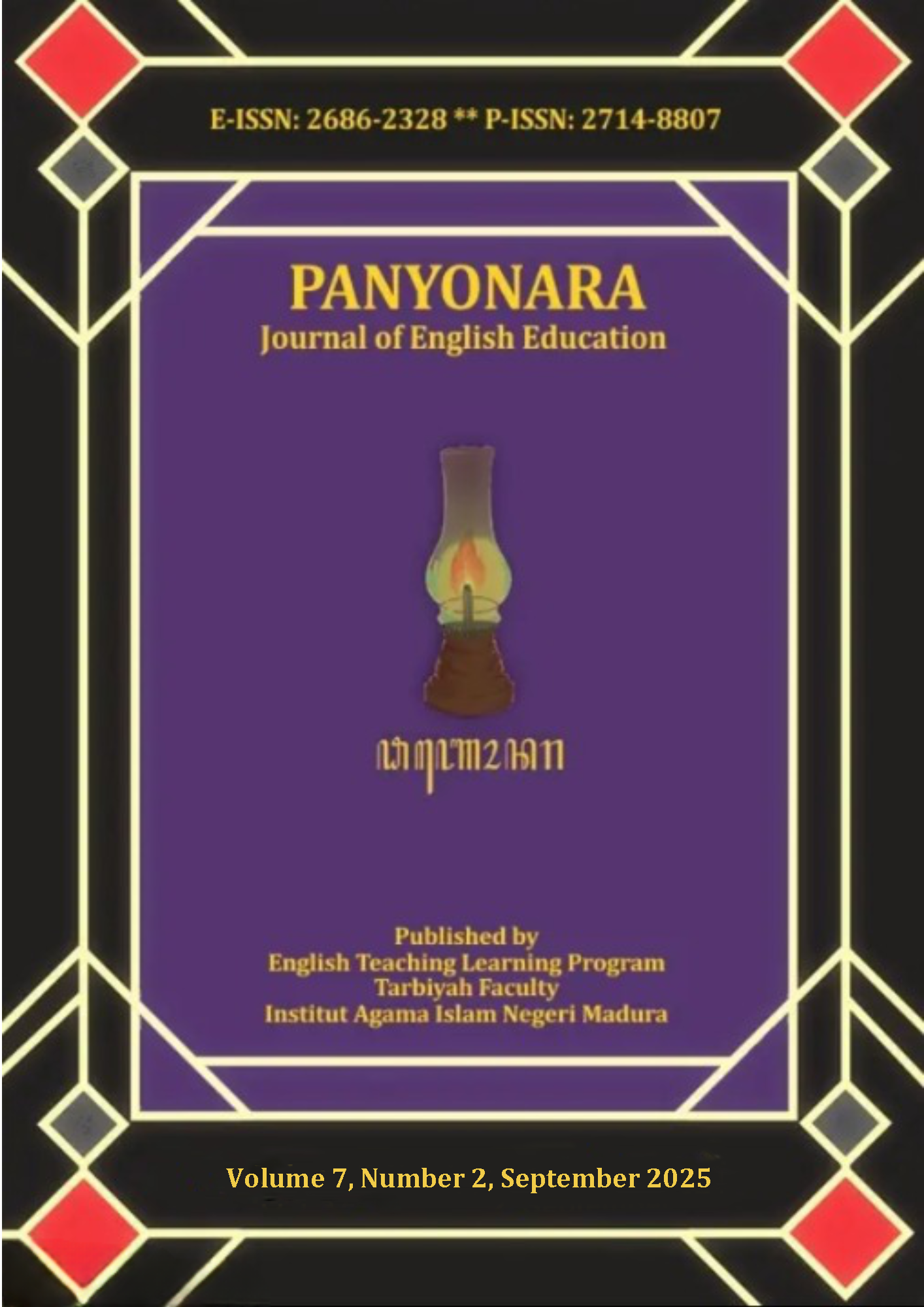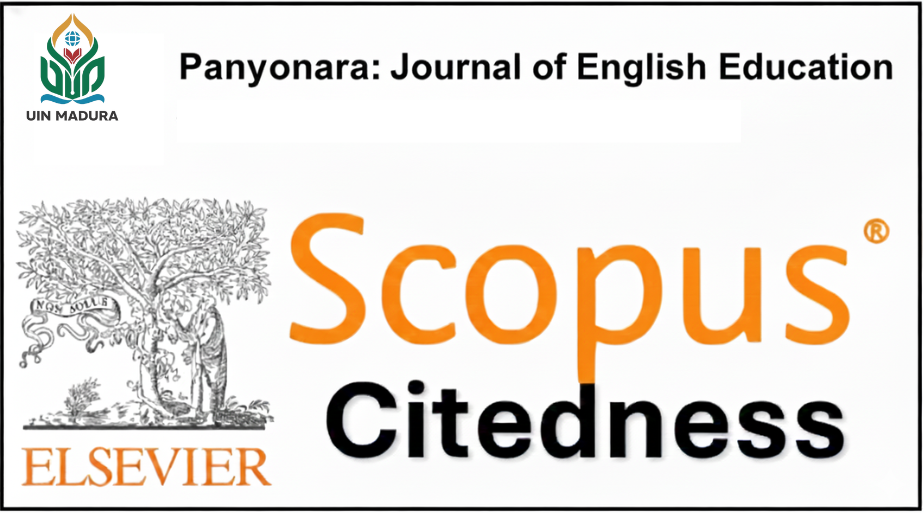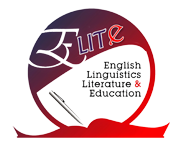Short-Term Gains, Long-Term Loss: Investigating EFL Students’ Retention of Academic Articles After Guided Writing
 Abstract views: 237
,
Abstract views: 237
,
 PDF downloads: 231
PDF downloads: 231
Abstract
Guided academic writing courses have become common in EFL higher education, often helping students produce publishable articles. However, whether such instruction leads to lasting understanding or merely short-term task completion remains unclear. This study investigated how well undergraduate EFL students retained the content of their self-written academic articles after completing a one-semester guided writing course. Using an explanatory sequential mixed methods design, the research involved 40 students who completed a final exam task requiring them to reconstruct the abstract and main argument of their article without referring to the original. Their performance was then followed by semi-structured interviews with a stratified sample, supported by semester-long observational field notes. Results indicated that over 85% of students were unable to recall the core ideas from their own articles accurately. Thematic analysis, interpreted through the lenses of constructivist learning theory, levels of processing, and authorial identity, revealed several contributing factors: shallow cognitive engagement, limited topic relevance, over-reliance on templates and AI tools, and a lack of personal ownership in the writing process. These findings highlight a disconnection between writing performance and long-term learning. Unlike prior studies focusing primarily on writing quality or output, this research addressed post-writing memory, a dimension rarely explored in EFL writing research. The study calls for a pedagogical shift toward more reflective, cognitively engaging, and identity-driven writing practices that promote meaningful retention and deeper academic development.
Downloads
References
Abhishek. B.P. (2022). Exploring the Effect of Linguistic Variables on the Recall. International Journal of Language, Linguistics, Literature and Culture, 1(1), 1–4. https://doi.org/10.59009/ijlllc.2022.0001.
Ajabshir, Z., & Poorebrahim, F. (2021). Assessing EFL Learners’ Written Performance: The Case of Task Repetition. Southern African Linguistics and Applied Language Studies, 39, 295–305. https://doi.org/10.2989/16073614.2021.1942098.
Al-Shboul, O. K., Rababah, L., Banikalef, A. A. A., & Mehawesh, M. I. (2023). Role of Learner Autonomy in Intrinsic Motivation in EFL Writing. International Journal of English Language and Literature Studies, 12(2), 107–116. https://doi.org/10.55493/5019.v12i2.4756
Alfianika, N., Sunendar, D., Sastromiharjo, A., & Damaianti, V. (2019). Writing Scientific Work for Indonesia Language and Literature Education Study Program Students at University. Proceedings of the International Conference on Education, Language and Society. https://doi.org/10.5220/0008998803490358.
Aljasir, N. (2025). Empowering Adult EFL Learners: A Self-Directed, Process-Oriented Writing Program. Journal of Language Teaching and Research, 16(1), 197–209. https://doi.org/10.17507/jltr.1601.21.
Anaktototy, K., Sekawael, M., Latief, M. R. A., & Bin-Hady, W. R. A. (2023). Beyond Linguistics: Exploring the Cognitive and Motivational Barriers to Essay Writing for Tertiary Students. International Journal of Language Education, 7(3), 447–468. https://doi.org/10.26858/ijole.v7i3.37070
Arliyanti, D., & Hapsari, A. N. (2022). EFL Undergraduate Students’ Cognitive Strategies in Process-Based Writing. Pioneer, 14(2), 1–17. https://doi.org/10.36841/pioneer.v14i2.1693
Aziz, I., Setyosari, P., Widiati, U., & Ulfa, S. (2024). Metacognitive Strategies to Improve Critical Thinking and Learner Autonomy in Writing Argumentative Texts in Islamic Boarding Schools. Al-Hayat: Journal of Islamic Education, 8(2), 788–803. https://alhayat.or.id/index.php/alhayat/article/view/671
Ballantine, J., Guo, X., McCourt Larres, P., & Yu, M. (2018). Chinese Authorial Identity: A Model for Scoring the Student Authorship Questionnaire. Studies in Higher Education, 43(12), 2385–2397. https://doi.org/10.1080/03075079.2017.1333493
Bangert-Drowns, R. L., Hurley, M. M., & Wilkinson, B. (2004). The Effects of School-Based Writing-to-Learn Interventions on Academic Achievement: A Meta-Analysis. Review of Educational Research, 74, 29–58. https://doi.org/10.3102/00346543074001029
Beattie, V., Collins, B., & McInnes, B. (1997). Deep and Surface Learning: A Simple or Simplistic Dichotomy? Accounting Education, 6, 1–16. https://doi.org/10.1080/096392897331587
Braun, V., & Clarke, V. (2006). Using Thematic Analysis in Psychology. Qualitative Research in Psychology, 3(2), 77–101. https://doi.org/10.1191/1478088706qp063oa
Braun, V. & Clarke, V. (2021). Thematic Analysis: A Practical Guide. London: Sage.
Chen, E., Han, Y., Li, Z., Wu, L., Jiang, J., Zhao, H., & Huang, Z. (2024). Supporting Your Idea Reasonably: A Knowledge-Aware Topic Reasoning Strategy for Citation Recommendation. IEEE Transactions on Knowledge and Data Engineering, 36, 4275–4289. https://doi.org/10.1109/TKDE.2024.3365508.
Chen, H., & Hu, G. (2025). Investigating Relationships Among Students’ Affective, Behavioral and Cognitive Engagement with Peer Feedback on EFL Writing. Studies in Educational Evaluation, 84, 101430. https://doi.org/10.1016/j.stueduc.2024.101430.
Cheung, K. Y. F., Elander, J., Stupple, E. J. N., & Flay, M. (2018). Academics' Understandings of the Authorial Academic Writer: A Qualitative Analysis of Authorial Identity. Studies in Higher Education, 43(8), 1468–1483. https://doi.org/10.1080/03075079.2016.1264382
Chukwuere, J. (2024). Critical Research Thinking: A Recipe for Academic Writing Success and Publications. 1–6. https://doi.org/10.32388/KNWPUJ
Coulmas, F. (2020). Writing and identity. Written Language & Literacy, 23(2), 180–193. https://doi.org/10.1075/wll.00039.cou
Craik, F. I. M., & Lockhart, R. S. (1972). Levels of Processing: A Framework for Memory Research. Journal of Verbal Learning and Verbal Behavior, 11, 671–684. https://doi.org/10.1016/S0022-5371(72)80001-X
Creswell, J. W., & Plano Clark, V. L. (2018). Designing and Conducting Mixed Methods Research (3rd ed.). Thousand Oaks, CA: SAGE.
Dasenko, B. (2020). Engaging Students Through Connection to Individual Experience: Using Personal Connection to Increase Student Competencies. In T. D. Neimann & U. M. Stelson (Eds.), Advances in Early Childhood and K-12 Education (pp. 223–234). IGI Global. https://doi.org/10.4018/978-1-5225-9775-9.ch012
Endres, T., Kranzdorf, L., Schneider, V., & Renkl, A. (2020). It Matters How to Recall – Task Differences in Retrieval Practice. Instructional Science, 48, 699–728. https://doi.org/10.1007/s11251-020-09526-1.
Fan, C., & Wang, J. (2024). Configurational Impact of Self-Regulated Writing Strategy, Writing Anxiety, and Perceived Writing Difficulty on EFL Writing Performance: An Fsqca Approach. Scientific Reports, 14(1), 11125. https://doi.org/10.1038/s41598-024-61537-x.
Fan, N. (2023). Exploring the Effects of Automated Written Corrective Feedback on EFL Students’ Writing Quality: A Mixed-Methods Study. SAGE Open, 13(2), 1–17. https://doi.org/10.1177/21582440231181296
Fhonna, R. (2020). The Lecturers’ Experiences on Students’ Thesis Supervision. Getsempena English Education Journal, 7(1), 113–122. https://doi.org/10.46244/geej.v7i1.992
Fu, X., Yang, C., & Zhang, T. (2024). Visibilizing Invisible Engagement Behind Students’ No-Revision Operation to Written Feedback. Language Teaching Research, 13621688241227666. https://doi.org/10.1177/13621688241227666.
Giessler, R. (2023). EFL Writers’ Cognitive Engagement With AWE Feedback. Language Awareness, 33, 428–445. https://doi.org/10.1080/09658416.2023.2269088.
Gintings, M. F. M. (2020). Promoting Students’ Writing Skill: Genre-Based Approach in Indonesia EFL Context. Lexeme : Journal of Linguistics and Applied Linguistics, 2(1), 31–35. https://doi.org/10.32493/ljlal.v2i1.6993.
Gu, M., Noordin, N., & Ismail, L. (2025). Enhancing Second Language Learners’ Writing through a Process-Genre Approach: A Multidimensional Analysis of Complexity, Accuracy, and Fluency Development. Arab World English Journal, 16(1), 221–234. https://doi.org/10.24093/awej/vol16no1.13
Guo, K., Chen, X., & Qiao, S. (2022). Exploring a Collaborative Approach to Peer Feedback in EFL Writing: How Do Students Participate? RELC Journal, 55(3), 658–672. https://doi.org/10.1177/00336882221143192
Hammad, E. A. (2022). The Effect of Using Personal Experience Journals on Writing Fluency and Writing Anxiety of Al-Aqsa University EFL Students. World Journal of English Language, 12(1), 301–313. https://doi.org/10.5430/wjel.v12n1p301
Hammond, K., & Barber, C. (2024). The limits of mastery learning. Phi Delta Kappan, 106(2), 4–18. https://doi.org/10.1177/00317217241287979
He, F. (2020). Identity Construction in Academic Writing of Student Writers Who Use English as an Additional Language: A Literature Review. Chinese Journal of Applied Linguistics, 43, 506–524. https://doi.org/10.1515/CJAL-2020-0033
Homan, Z. (2019). Writing and Identity. Mittani Palaeography. https://doi.org/10.1163/9789004417243_003
Huang, G., & Rawian, R. (2025). Metacognitive Factors Affecting English as a Foreign Language (EFL) Student-writers’ Academic Writing Performance. World Journal of English Language, 15(5), 90–102. https://doi.org/10.5430/wjel.v15n5p90
Hyland, K., & Hyland, F. (2019). Feedback in Second Language Writing: Contexts and Issues. Cambridge: Cambridge University Press.
Hyland, K. (2002). Authority and Invisibility: Authorial Identity in Academic Writing. Journal of Pragmatics, 34, 1091–1112. https://doi.org/10.1016/S0378-2166(02)00035-8
Ivanic, R. (1998). Writing and Identity: The Discoursal Construction of Identity in Academic Writing. John Benjamins Publishing Company. https://doi.org/https://doi.org/10.1075/swll.5
Jiang, A. L., Sun, K., Liang, J., Jin, Y., & Zhang, S. (2025). Unpacking the Relationship among Task Engagement, Achievement Emotions and Emotion Regulation among EFL Learners: A Network Analysis. Perceptual and Motor Skills, 00315125251325588. https://doi.org/10.1177/00315125251325588
Jin, X., Jiang, Q., Xiong, W., Feng, Y., & Zhao, W. (2022). Effects of Student Engagement in Peer Feedback on Writing Performance in Higher Education. Interactive Learning Environments, 32, 128–143. https://doi.org/10.1080/10494820.2022.2081209
Ke, Y., & Zhou, X. (2024). Unlocking the Core Revision of Writing Assessment: EFL Learner's Emotional Transformation From Form Focus to Content Orientation. BMC Psychology, 12(1), 1-18. https://doi.org/10.1186/s40359-024-01977-2
Keen, J. (2021). Teaching Writing: Process, Practice and Policy. Changing English, 29, 24–39. https://doi.org/10.1080/1358684X.2021.2008229
Khairuddin, Z., Daud, K., Anuar, N., Satimin, O., Yusof, F., & Sabri, S. (2025). Relationship Between Perceived Students’ Critical Thinking Skills and Academic Writing Skills. International Journal of Research and Innovation in Social Science 3(3), 472–479. https://doi.org/10.47772/ijriss.2024.803343s
Kim, M., Kim, Y., & Kang, S. (2024). The Dynamics of Changes in Linguistic Complexity and Writing Scores in Timed Argumentative Writing Among Beginning-Level EFL Learners. International Review of Applied Linguistics in Language Teaching, 5(1), 1–35. https://doi.org/https://doi.org/10.1515/iral-2023-0287
Kim, Y. (2023). Teaching and Learning Method to Enforce Authorship in College Writing. The Korean Association of General Education 17(2), 69–81. https://doi.org/10.46392/kjge.2023.17.2.69
Kim, Y. (2024). A Study on Metacognitive Strategies in University Writing Instruction. Korean Association for Literacy, 40(3), 161–185. https://doi.org/10.37736/kjlr.2024.12.15.6.06
Krishnasamy, H., Zainudin, R., Nair, S., & Siddique, M. (2025). Utilizing Graphic Organizers to Enhance Retention of Knowledge in ESL Writing Skills. Malaysian Journal of Learning and Instruction, 12(1), 181–199. https://doi.org/10.32890/mjli2025.22.1.10
Lahuerta, A. (2018). Study of Accuracy and Grammatical Complexity in EFL Writing. International Journal of English Studies, 18(1), 71–89. https://doi.org/10.6018/IJES/2018/1/258971
Lambright, K. (2023). The Effect of a Teacher’s Mindset on the Cascading Zones of Proximal Development: A Systematic Review. Technol. Knowl. Learn, 29, 1313–1329. https://doi.org/https://doi.org/10.1007/s10758-023-09696-0
Lasminiar, P. (2020). Implementation of Teacher and Peer Feedback in Writing. PANYONARA: Journal of English Education 2(2), 125–136. https://doi.org/10.19105/panyonara.v2i2.3670
Le, H. V., Nguyen, T. A. D., Le, D. H. N., Nguyen, P. U., & Nguyen, T. T. A. (2024). Unveiling Critical Reading Strategies and Challenges: A Mixed-Methods Study Among English Major Students in a Vietnamese Higher Education Institution. Cogent Education, 11(1), 1–19. https://doi.org/10.1080/2331186x.2024.2326732
Levin, O. (2024). Simulation as a Pedagogical Model for Deep Learning in Teacher Education. Teaching and Teacher Education 143 (3), 1–15. https://doi.org/10.1016/j.tate.2024.104571.
Lezhneva, E., & Nikolaeva, N. (2024). Constructing Academic Identity of Research Students by English Resourse at Technical Higher Educational Institution. World of Science. Pedagogy and Psychology, 12(2), 1–8. https://doi.org/10.15862/55pdmn224.
Li, S. (2024). Research on Academic English Writing Teaching Based on Production-oriented Approach. World Journal of Educational Research, 11(3), p36. https://doi.org/10.22158/wjer.v11n3p36.
Lillis, T., & Turner, J. (2001). Student Writing in Higher Education: Contemporary Confusion, Traditional Concerns. Teaching in Higher Education, 6, 57–68. https://doi.org/10.1080/13562510020029608
Lim, Y. (2024). Cognitive Engagement in AI-Supported Integrated Language Learning: A Comparative Study of CBI and TBI Using Bloom’s Taxonomy. 교육과학연구(제주대학교, 26(4), 133–152. https://doi.org/10.15564/jeju.2024.12.26.4.133
Lincoln, Y.S. & Guba, E. G. (1985). Naturalistic Inquiry. SAGE, Thousand Oaks. https://doi.org/10.1016/0147-1767(85)90062-8
Margolis, A. (2020). Zone of Proximal Development, Scaffolding and Teaching Practice. Cultural-Historical Psychology, 16, 15–26. https://doi.org/10.17759/chp.2020160303.
Marton, F., & Saljo, R. (1976). On Qualitative Differences in Learning: 1-Outcome and Process. British Journal of Educational Psychology, 46, 4–11. https://doi.org/10.1111/j.2044-8279.1976.tb02980.x
Matric, M. (2019). Autonomous vs. Controlling Educational Environments. Journal of Process Management. New Technologies, 7(1), 63–69. https://doi.org/10.5937/JOUPROMAN7-19504
Mishra, S., Vashisth, S., Priyanka, P., Vanitha, V., Jaichithra, D., & Nagaraj, P. (2024). Utilizing Deep Learning Models for Enhanced Error Detection and Correction in English Writing Tasks. International Conference on Communication, Control, and Intelligent Systems (CCIS), 1–5. https://doi.org/10.1109/CCIS63231.2024.10932040
Nhung, N. T. (2024). Scaffolding Techniques in Teaching Writing to First-Year University Students: An Empirical Study at a University in Hanoi. International Journal of Social Science and Human Research, 7(9). https://doi.org/10.47191/ijsshr/v7-i09-54
Patton, M. (2015). Qualitative Research and Evaluation Methods (4th Edition). Sage Publications, Thousand Oaks.
Peng, N., Logie, R., & Della Sala, S. (2024). Effect of Levels of Processing on Rates of Forgetting. Memory & Cognition, 53, 692–709. https://doi.org/10.3758/s13421-024-01599-4
Phan, H. L. T., & Dao, P. (2023). Engagement in collaborative writing: Exploring learners’ control of task content and text quality. International Journal of Applied Linguistics, 33(2), 242–259. https://doi.org/10.1111/ijal.12462
Piaget, J. (1972). (1972). Intellectual Evolution from Adolescence to Adulthood. Human Development, 15, 1–12. https://doi.org/10.1159/000271225
Pollack, A. (2022). Deep versus Shallow Processing: A Learning and Memory Experiment for Asynchronous and Synchronous Online Platforms. Journal of Undergraduate Neuroscience Education : JUNE : A Publication of FUN, Faculty for Undergraduate Neuroscience, 20(2), A146–A149. https://doi.org/10.59390/FEAP4736
Qin, W., Li, H., & Zheng, Y. (2023). Group Trends and Individual Variability in Writing Development: A Descriptive Grammatical Complexity Analysis. International Review of Applied Linguistics in Language Teaching, 62, 37–60. https://doi.org/10.1515/iral-2023-0011
Qizi, M. (2021). Effective Strategies for Teaching Writing. Academicia Globe: Inderscience Research 2, 15–17. https://doi.org/10.17605/OSF.IO/4A8KH
Rahimi, M., & Zhang, L. (2021). Effects of an Engaging Process-Genre Approach on Student Engagement and Writing Achievements. Reading & Writing Quarterly, 38, 487–503. https://doi.org/10.1080/10573569.2021.1982431
Rahman, M. A., Handrianto, C., Kenedi, A. K., Ilhami, A., & Ghafar, Z. N. (2024). Exploring the Interplay between Writing Practices and Identity Formation in Academic Contexts. Journal of Digital Learning and Distance Education, 2(12), 838–848. https://doi.org/10.56778/jdlde.v2i12.238
Repanovici, A., & Koukourakis, M. (2024). Research and Conclusions Regarding Using Problem-Based Learning -PBL- in Teaching. Springer Science+Business Media, 199–209.
Schneider, J. (2022). Writing Strategies as Acts of Identity. TESOL Quarterly, 56(1), 230–253. https://doi.org/10.1002/tesq.3061
Serra, T., Gras, M. E., Cañabate, D., & Colomer, J. (2023). Fostering Cognitive Control Through Reflection in Scientific Writing. Reflective Practice, 24(4), 433–446. https://doi.org/10.1080/14623943.2023.2210064
Shen, B., & Bai, B. (2022). Chinese University Students’ Self-Regulated Writing Strategy Use and EFL Writing Performance: Influences of Self-Efficacy, Gender, and Major. Applied Linguistics Review, 15, 161–188. https://doi.org/10.1515/applirev-2020-0103
Sherpa, S. Z. (2021). Effects of Direct and Indirect Written Corrective Feedback on Bhutanese Learners’ Grammatical Accuracy Over Time. LEARN Journal: Language Education and Acquisition Research Network, 14(1), 574–603.
Staples, S., Egbert, J., Biber, D., & Gray, B. (2016). Academic Writing Development at the University Level: Phrasal and Clausal Complexity Across Level of Study, Discipline, and Genre. Written Communication, 33(2), 149–183. https://doi.org/10.1177/0741088316631527
Syazali, M., Erfan, M., Khair, B., Rahmatih, A., & Hasnawati, H. (2023). The Effectiveness of Template and Example Paper Implementation in Developing Student Writing Skills in Science Courses. Jurnal Pijar Mipa, 18(3), 336–342. https://doi.org/10.29303/jpm.v18i3.4661
Tavanapour, S., & Chalak, A. (2021). Impact of Inquiry Learning Method on the Grammatical Accuracy of Iranian EFL Learners’ Writing. International Journal of Research in English Education, 6(3), 86–95. https://doi.org/10.52547/ijree.6.3.86
Teng, L. S. (2022). Sociocognitive Theory, Sociocultural Theory and SRL. Springer International Publishing, 61–77. https://doi.org/10.1007/978-3-030-99520-1_4
Teng M., F. Yue M. (2023). Metacognitive Writing Strategies, Critical Thinking Skills, and Academic Writing Performance: A Structural Equation Modeling Approach. Metacognition and Learning, 18(1), 237–260. https://doi.org/10.1007/s11409-022-09328-5
Thongchalerm, S., & Jarunthawatchai, W. (2020). The Impact of Genre Based Instruction on EFL Learners’ Writing Development. International Journal of Instruction, 13, 1–16. https://doi.org/10.29333/iji.2020.1311a
Tournier, I., Jordan, O., & Ferring, D. (2016). Motivation and Memory: Impact of Emotional Content and Age Relevance on Recall. Geropsych: The Journal of Gerontopsychology and Geriatric Psychiatry, 29(3), 147–154. https://doi.org/10.1024/1662-9647/A000153
Volkov, S. (2024). Metacognitive Practices in Training for Essay Writing in a Target Language. Teaching Languages at Higher Institutions, 45, 10–23. https://doi.org/10.26565/2073-4379-2024-45-01
Vygotsky, L. S. (1978). Mind in Society: The Development of Higher Psychological Processes. Harvard University Press.
Wang, A., Aggazzotti, C., Kotula, R., Soto, R., Bishop, M., & Andrews, N. (2023). Can Authorship Representation Learning Capture Stylistic Features?. Transactions of the Association for Computational Linguistics, 11, 1416–1431. https://doi.org/10.1162/tacl_a_00610.
Wang, L., & Jin, C. (2022). Effects of Task Complexity on Linguistic Complexity for Sustainable EFL Writing Skills Development. Sustainability, 14(8), 4791. https://doi.org/10.3390/su14084791.
Wang, N. (2024). EFL Writer Identity Construction in Academic Writings: A Systematic Review. English Language Teaching and Linguistics Studies, 6(4), p57. https://doi.org/10.22158/eltls.v6n4p57
Wang, S., & Kew, S. N. (2025). A Review on the Impact of a Blended Process-oriented Approach on the English Writing Skills. World Journal of English Language, 15(3), 251. https://doi.org/10.5430/wjel.v15n3p251
Wynn-Williams, K., Beatson, N. J., & Anderson, C. (2016). The Impact of Unstructured Case Studies on Surface Learners: A Study of Second-Year Accounting Students. Accounting Education, 25(3), 272–286. https://doi.org/10.1080/09639284.2016.1165125
Yang, A., & McDonnell, L. (2024). Student Definitions of Ownership and Perceived Ways Ownership Influences Writing in a Biology Laboratory Class. Journal of Microbiology & Biology Education, 25(1), e00197-23. https://doi.org/10.1128/jmbe.00197-23.
Zhang, L., & Wang, J. (2024). To Be Like a “Scholar”: A Study on the Construction of Authorial Identity of Chinese EFL Learners in Academic Writing: An Intertextuality Perspective. Frontiers in Psychology, 14, 1297557. https://doi.org/10.3389/fpsyg.2023.1297557
Zhao, Z., Nimehchisalem, V., & Chan, M. Y. (2024). Independent Writing Tasks vs. Integrated Writing Tasks: The Cognitive Demands and Their Impacts on Linguistic Complexity in EFL Writing. Theory and Practice in Language Studies, 14(8), 2606–2617. https://doi.org/10.17507/tpls.1408.33
The journal uses an Open Access policy under a Creative Commons Attribution-NonCommercial 4.0 International License. Authors who publish with this journal agree to the following terms:
- Authors retain copyright and grant the journal right of first publication with the work simultaneously licensed under a Creative Commons Attribution License that allows others to share the work with an acknowledgment of the work's authorship and initial publication in this journal.
- Authors are able to enter into separate, additional contractual arrangements for the non-exclusive distribution of the journal's published version of the work (e.g., post it to an institutional repository or publish it in a book), with an acknowledgment of its initial publication in this journal.
- Authors are permitted and encouraged to post their work online (e.g., in institutional repositories or on their website) prior to and during the submission process, as it can lead to productive exchanges, as well as earlier and greater citation of published work.

















